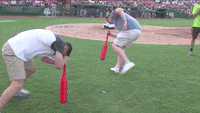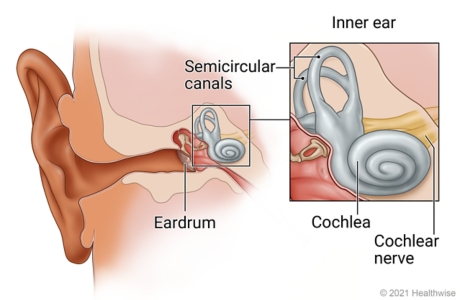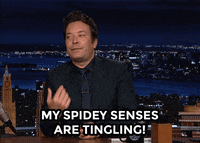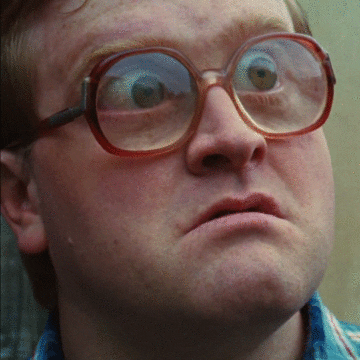Dizziness is awful! Dizziness can range from the annoying to the traumatic. It can be downright debilitating to your day and your hobbies, changing your life. It’s hard to enjoy what is in front of you when you are always distracted by either feeling dizzy or worrying that the next movement will cause it again. I want this blog to help you know the potential reason behind your dizziness and if we are the right solution for you!
First let’s talk about what vertigo is so you have a better understanding of what you would be experiencing. Vertigo is a miscommunication between your eyes, ears, and brain. This indecision of which direction you are traveling will cause a sudden and explosive spinning effect. Likely causing a complete loss of balance, orientation, and ability to do anything (and sometimes nausea).

This severe debilitation will have you second guessing moving again, let alone working out. There are a few different reasons for why this happens so let’s talk about it!
The first reason is at the ear. The ear isn’t only for listening, the inside of your ear is for telling the brain where you are in space. So when you are sitting here reading this, your ear knows that, and it will know if you decide to take a quick look at your phone when a text comes through. The inner ear system monitors your movement, or lack thereof, through a series of loops called the semicircular canals. These tubes go in three different directions that monitor their own direction which are up down, forward back, and side to side. A nice 3D system. And you naturally have two of them, because unless you are the artist of Starry Night, you are still intact.

Inside these tubes are fluid and all of these tubes run back to a home base that has an organ in it that reads the flow of that fluid. You can picture this organ as a little garden of grass with a solid irrigation system of rocks and pebbles that the grass is planted in. When the fluid rushes past the blades of grass that information is captured by the small garden and through the pebbles reading the direction and sent to the brain indicating the movement you just did.
So for instance, you take the Tower of Terror ride and drop 13 floors, that fluid begins rushing through the tube responsible for that direction and the home base reads that you are going down, very fast down. So fast in fact that the signal is delayed and you get the rush of spending two hours in a line to fall 199 feet. So that is the fun use of the ear.

However, dysfunction can occur and that fun can quickly turn to the real terror known as benign paroxysmal positional vertigo, or BPPV. This is a very common cause of the feeling of spinning, and not in a fun way. What happens in this case is that the pebbles that are in the home base organ can get out and find themself in one of the loops. The problem with that is when the fluid rushes through the canal, the pebble will give the home base organ the information that you are traveling in the opposite direction. And what we have here is a failure to communicate.
The good news about the BPPV is that it can be a very easy treatment. A trained Physical Therapist will be able to relocate those pebbles, known as otoconia, and create a return to normalcy through a series of turns. Additionally, BPPV can resolve itself through what are known as dark cells. However, if you are having multiple episodes of vertigo, it is best to have it checked out rather than wait on a potential spontaneous resolution.
However, this is not the only source of dizziness and issues around the ear. Like I mentioned, BPPV can have a spontaneous resolution, but due to the terrible experience of having episodes like that, people typically stop moving the same way. This applies to every injury or issue with movement. The body wants to keep you safe so it will create a reduction or change in movement naturally. Think of it as a limp. This ear limp presents as a reduction in head movement, and subsequently a down regulation of input from the ears.
Let’s take a quick break and talk about the organs responsible for creating the feeling of knowing where you are, technically known as proprioception. To keep it simply, we have the eyes, ears, and touch. Those make up your ability to SEE where you are, SENSE where you are, and FEEL where you are. Together they come together in the brain as a living picture of your position. The brain depicts your position the best when all three are contributing evenly. When one of these is altered, the others will try to take up the slack to make sure you don’t lose your balance. When the lights turn off, you suddenly are more reliant on your touch and ears. When the ground is really squishy and moving, like a trampoline, then you rely more heavily on your ears and eyes. This can even occur with multiple ear infections to one ear, creating an imbalance that the eyes and skin have to compensate for. When the information doesn’t get to the brain in a sufficient way, dizziness can occur, heightening the chances of you losing your balance and even falling.

So with that information, what commonly happens is that someone experiencing vertigo stops moving their head as much, and becomes very reliant on their eyes and touch. This is what we call visual dependence. Incredibly common after a vestibular injury. So in this case you will not always test positive for vestibular issues, but you will still get dizziness with movement. That is because the team of organs are not all contributing evenly.

That is something that a trained physical therapist can resolve as well! These things take time, but what you need is habituation and retraining of the organs responsible for knowing where you are. Think of it similar to muscular training. You adapt to the fatigue of having to use them, creating normalcy again.
The last cause of dizziness that I want to go over is a “central” cause. This relates to the brain and spinal cord. Concussion and orthostatic hypotension are common mechanisms behind this experience. Or much more rarely, a potential tumor or alteration of the brain. Symptoms will always vary, but the dizziness will be more represented by constant dizziness without having movement to blame and the feeling of the spinning happening more “inside” your head rather than the room spinning. This is something that you will need to see a medical doctor for in order to rule out something more malicious.
In order to answer the question of if you have vertigo, the answer is it depends! Vertigo is very commonly characterized by sudden dizziness for a short period of time in which the room feels like it is spinning. This typically happens occasionally with MOVEMENT. With movement such as standing up or rolling over in bed. In this case treatment is a fantastic option. A quick fix to a very debilitating issue. Usually seeing results in as little as one treatment!
However a full evaluation is always important! To be able to tease out the intricacies of your symptoms and be able to treat it accordingly. The Charlotte Athlete offers this kind of care and if you have any questions please reach out! No one should have to experience dizziness.
Thanks for reading,
Dr. Ells

